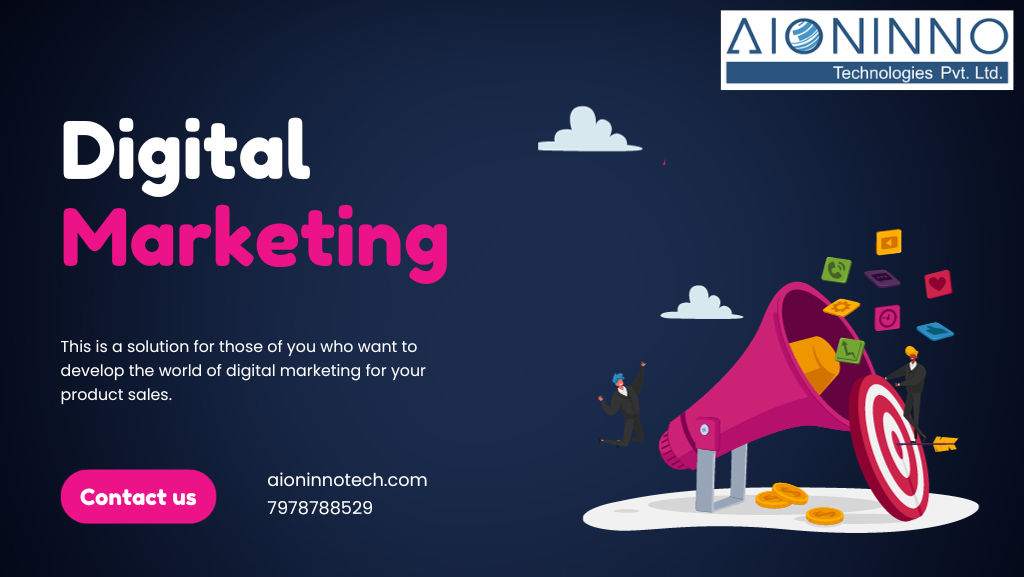digital marketing
In today’s digital age, having a strong online presence is crucial for businesses to thrive. Digital marketing
has become the driving force behind successful marketing strategies, allowing businesses to reach their target audience effectively and efficiently. Whether you’re a small startup or a well-established company, understanding the ins and outs of digital marketing is essential for staying ahead of the competition. In this blog post, we will explore the world of digital marketing and provide insightful tips and strategies to help you navigate this dynamic landscape. From search engine optimization and social media marketing to content creation and email campaigns, we’ll cover it all and help you harness the power of digital marketing to drive your business forward.
The importance of a strong online presence for businesses
In today’s digital age, having a strong online presence is crucial for businesses of all sizes. It goes beyond just having a website; it encompasses building a reputation, establishing trust with customers, and ultimately driving sales and gaining new customers. One of the primary benefits of a strong online presence is the ability to showcase your brand and what sets you apart from the competition. Through a well-designed website, engaging social media profiles, and consistent messaging, businesses can shape their online identity and create a positive impression on potential customers. This is especially important in a crowded marketplace, where differentiation and brand recognition are key factors for success. Having an online presence also provides customers with a convenient and accessible way to reach out to businesses. It opens up channels for communication, allowing customers to ask questions, provide feedback, and seek help or support. This not only enhances the customer experience but also creates opportunities for businesses to address concerns promptly and build long-lasting relationships.
Understanding the different aspects of digital marketing: SEO, SEM, social media, content marketing, etc.
Digital marketing encompasses a vast array of strategies and techniques aimed at promoting businesses and their offerings in the digital landscape. One of the most crucial aspects of digital marketing is Search Engine Optimization (SEO). SEO is a process that involves using organic tactics to rank high on search engines. By optimizing your website and its content, you can attract more traffic from the search engine results page (SERP). But SEO is just one piece of the puzzle. To have a comprehensive digital marketing strategy, it’s important to understand and utilize other aspects as well. One such aspect is Search Engine Marketing (SEM), which involves paid advertising on search engines to drive targeted traffic to your website. In addition to SEO and SEM, social media marketing plays a vital role in digital marketing. With billions of users actively engaging on various social media platforms, businesses can leverage these channels to reach and connect with their target audience. By creating compelling content, engaging with followers, and running targeted ad campaigns, social media can drive brand awareness, traffic, and conversions. Content marketing is another crucial aspect of digital marketing. By creating valuable and relevant content, businesses can establish themselves as industry experts and attract an audience. Content marketing includes blog posts, articles, videos, infographics, and more. When combined with SEO, content marketing can significantly improve organic search visibility and drive more traffic to your website. Email.
Creating an effective digital marketing strategy: setting goals, defining target audience, selecting the right channels
Creating an effective digital marketing strategy is crucial for any business looking to thrive in the digital era. To get started, you need to set clear goals and define your target audience. Your goals should align with your overall business objectives and be specific, measurable, attainable, relevant, and time-bound (SMART). These goals could include increasing brand awareness, boosting website traffic, generating leads, or increasing sales. Next, it’s important to define your target audience. Understanding who your ideal customers are will help you tailor your messaging and tactics to reach them effectively. Consider factors such as demographics, interests, behaviors, and pain points when creating your buyer personas. The more you know about your target audience, the better you can tailor your marketing efforts to resonate with them. Once you have your goals and target audience in place, it’s time to choose the right digital marketing channels. There are various channels to consider, such as social media, email marketing, search engine optimization (SEO), pay-per-click (PPC) advertising, content marketing, and more. Evaluate each channel’s suitability based on your goals, target audience, and budget. Creating engaging and relevant content is a key component of any successful digital marketing strategy. Your content should provide value to your audience, address their pain points, and showcase your expertise. This can include blog posts, videos, infographics, case studies, and more. Tailor your content to each specific channel and audience segment to maximize engagement and conversions. Social media marketing is an essential aspect of digital marketing. With billions of people using social media platforms, it’s an excellent opportunity to connect with your target audience. Choose the platforms where your audience is most active and leverage them to build brand awareness, engage with your audience, and drive traffic to your website. Finally, optimizing your digital presence for search engines is crucial for visibility and organic traffic.




